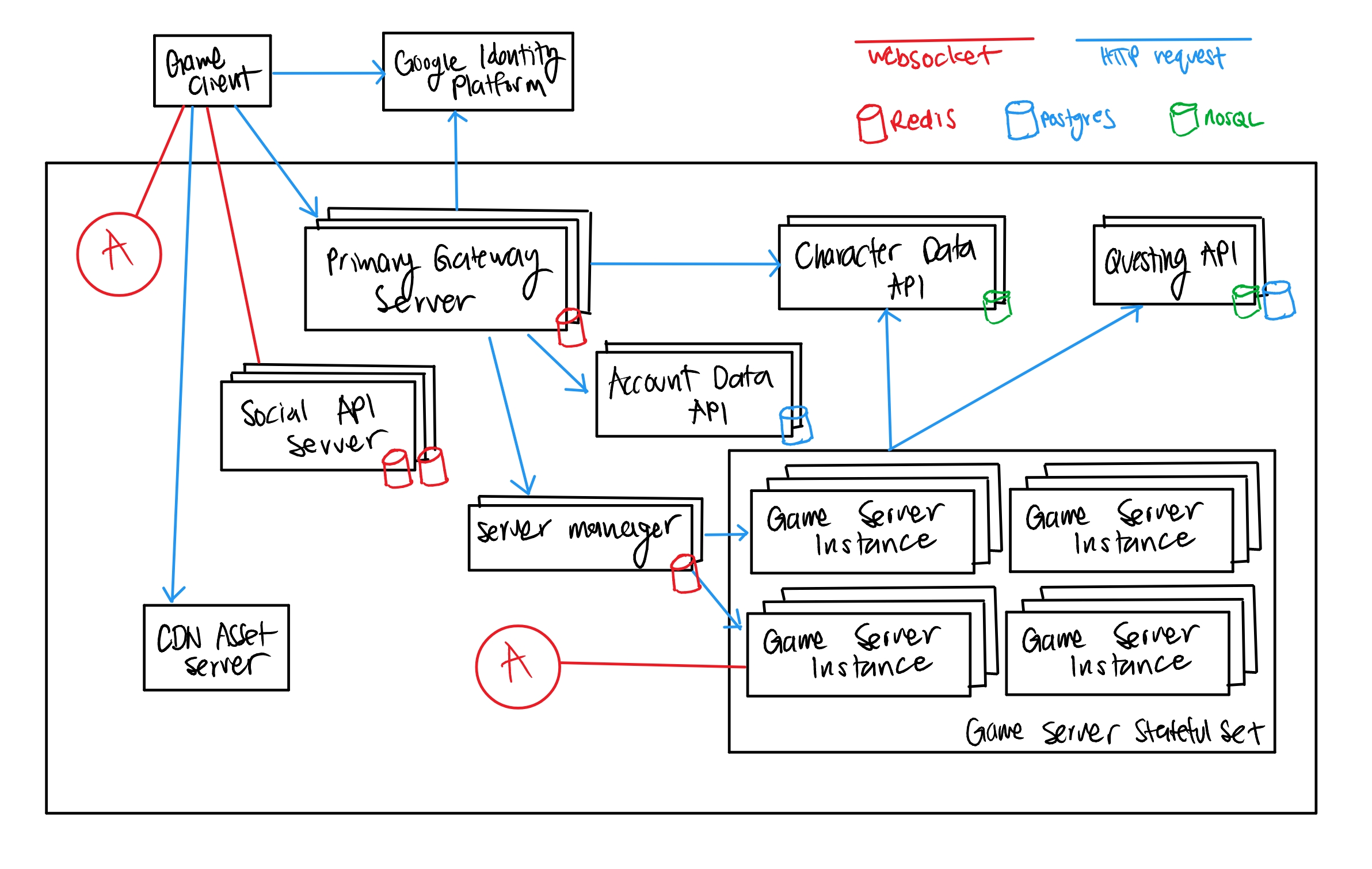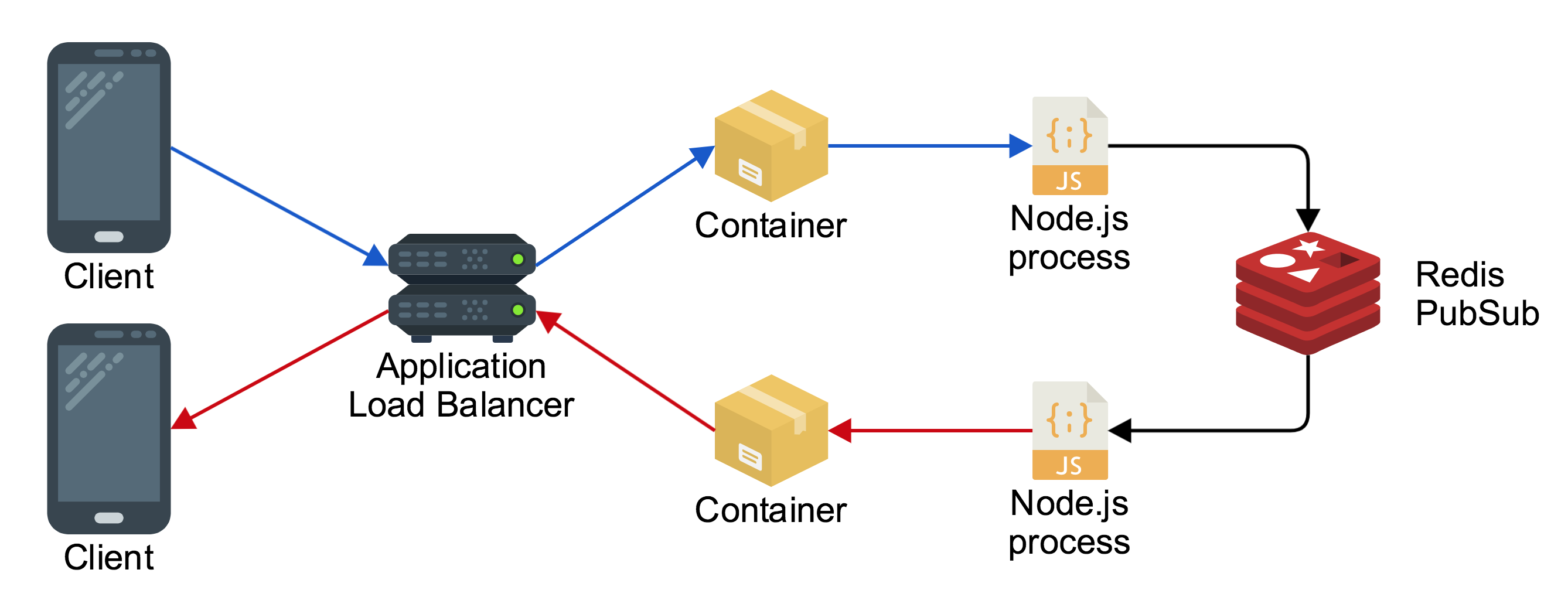Social API Server
Description:
The Social API Server is in charge of faciliating all inter-character communication and interaction.
Features:
- Maintains Character Search Records for currently Logged In Characters
- Name, Log In Status, Current Location, Current Class/Job, Guild/Company
- Note: There is a difference between Character Search Records and Charcter Data. Search Records only include a sparse amount of information about the Character but does include their current location.
- Handles Non-Proximity based Chatting
- Includes Direct Messages, Party Chat, Guild Chat, Linkshells
- Does NOT include Local Chat
- Handles Party System and Guild System
Tools:
- Express.js
- Socket.io
- Redis-Adapter
- Redis
The diagram above is an example of how the Socket.io redis-adapter will function and broadcast messages between different running instances.
Process Flowcharts:
Sending a Direct Message
- When a Character logs in and connects to the Game Server, the Client also creates a websocket connection with the Social API Server
- On Client connect, the client joins a Socket.io room name “DM:@charactername”
- The Client also joins additional Socket.io room: “guild:@guildname”, “linkshell:@linkshellID”
- On forming a party, the Client will also subscribe to a room; “party:@partyID”
- Client sends a Socket.io message to the Social API Service with the string: “/dm @lambseel here is my message”
- The Social API Service will parse the message to: “/dm”, “@lambseel”, “here is my message”
- Social API Server will check if the room “dm:lambseel” exists
- If the room does not exist, respond back to the Client that the user is offline
- Social API Server will make a call:
socket.to(dm:lambseel, "here is my message")- redis-adapter publishes message events to all Social API Server pods
- If a Social API Server Pod has a socket connection thats subscribed to a “dm:lambseel” room, then that Pod sends a message through that socket to User lambseel’s chat Client.
Proximity Chat (Game Server Instance):
- Client sends a chat message to the Game Server Instance
- Game Server Instance emits that message to all of its active websocket connections
Getting Character Search Record
- on Client connect, the Social API Server will make an API request to the Character Data API
- the Social API Server will then create a Search Record Entry of the Character’s Data
Udpating Location in Character Search Record
- on Client connect to a Game Server Instance, the Game Server Instance will send an API request to the Social API Server with the Character’s new location
- the Social API Server updates the Search Record’s Location field for that Character in the Redis database
Getting Status of Characters on Friends List
- the Client should have their Friends List cache/stored locally
- the Client sends a GET API request to the Social API Server with a list of Characters on their Friends List
- the Social API Server just grabs the Search Records for each Character in the list
- If the Character is not in the Search Recrods, then they are assumed to be offline
- the Social API Server responds back to the client with the results


